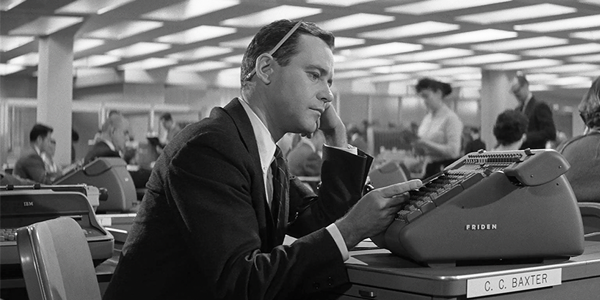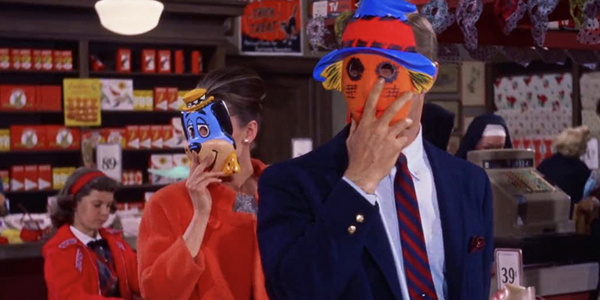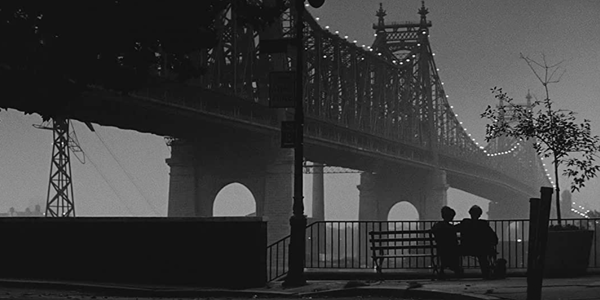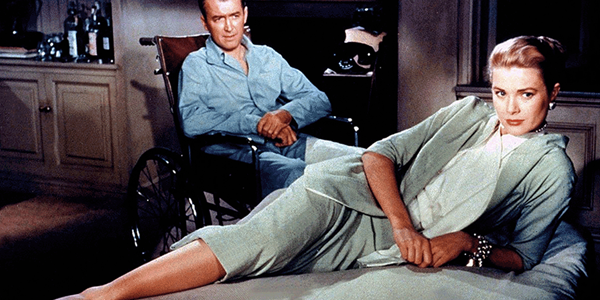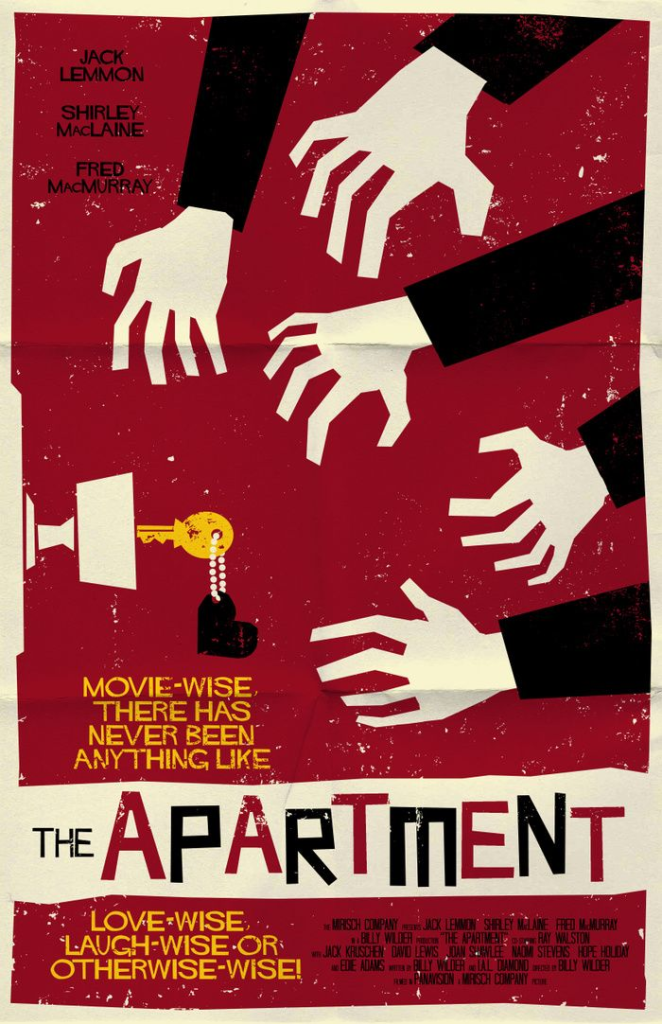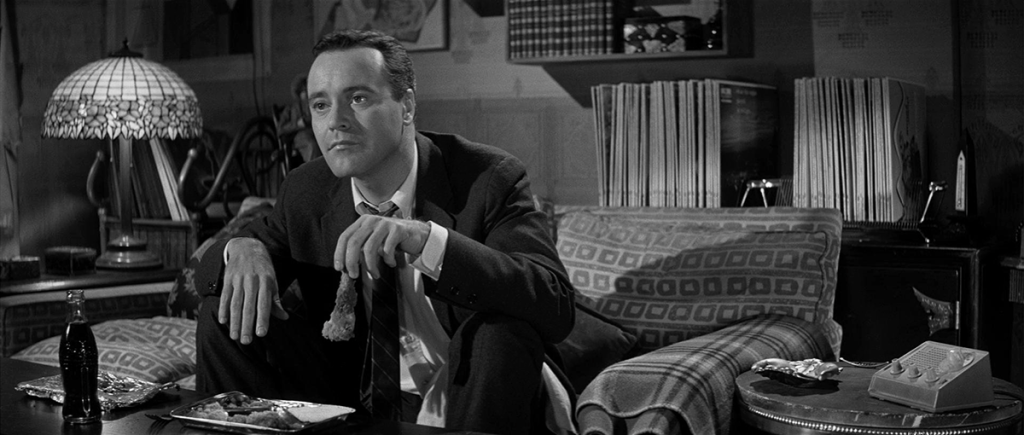
review | The Apartment
Not up with Billy Wilder’s very best work, but something of a revelation—for unexpected reasons—when viewed on Prime
by Michael Gaughn
May 23, 2022
I’ve never been a big fan of this 1960 Billy Wilder portrait in dour but, unable to sleep one night last week and with nothing else inviting on Prime, I decided to give it another shot—and was surprised to find myself engaging with and through it in ways I never have before. It will never be one of my favorite films, but I walked away with a lot of respect for the movie Wilder meant to make and a deep fascination with what he inadvertently captured along the way.
Movies about New York might be our most accurate cultural barometer; they tend also to be the most nuanced views of who we are a whole. And that’s largely because no other city seems to be swayed and jolted by—or more forcefully influence—the societal currents more overtly or dramatically. Just consider films like The Naked City, Sweet Smell of Success, Breakfast at Tiffany’s, Taxi Driver, or Manhattan. No other city is as evocative on film, or more readily acts as magnet for our emotions or biases or preoccupations. And I say that knowing The Apartment is about as New York as Wiener schnitzel, but I’m talking about capturing the essence of the city at a certain moment in time—even though most of this film was shot on soundstages 3,000 miles away.
New York and American culture were both at their peak in 1960. The previous five years had seen the emergence of a kind of renaissance, with pop and serious culture achieving as good a symbiosis as two such antithetical forces can ever hope to achieve. Its hub was Manhattan; its influence was national—global, too. Pop was inflecting things like high-end design and fashion, classical music, and gallery art in ways that would have been unthinkable at the beginning of the decade, and things like serious music and architecture and foreign film were being embraced—admittedly somewhat tentatively—by the mainstream, resulting in an unprecedentedly fecund cross-pollination.
The Apartment embodies all of that—and because it both expresses and feeds from that phenomena, it shows how volatile the various elements were, and how brittle the balance. It also shows—mostly unconsciously—the emerging forces that, within a couple of years, would shred everything the culture had achieved and open a massive wound that still hasn’t healed, and may never heal.
Consider some facts: Jack Lemmon’s character is a junior accountant at a Manhattan insurance company. His weekly pay is $94.70. He has a one-bedroom apartment two and a half blocks from Central Park for which he pays $85 a month. At one point, a switchboard operator—a white female—asks for cab fare back to her apartment at 179th Street in the Bronx. At another point, Fred MacMurray tips a bootblack a dime for a shine. Most people in the present would be incapable of processing any of that information, let alone of putting it in context. It all reads like intercepted transmissions from some alien civilization. And yet that was us, once.
I’m not being nostalgic, just accurate. You can’t watch this film and not sense the tremendous gulf between those two eras, these two worlds. Which underlines the fact there is just no way to see The Apartment the way audiences did at the time—they were different beings. But it sure is fun to try.
This is thought of as a comedy, but only about 10% of it could be labeled that; maybe about 30% could be considered romantic comedy. The rest is pretty damn serious, and troubling. And Wilder shifts the tone constantly, sometimes from scene to scene, sometimes shot to shot.
Re Wilder: Double Indemnity and Sunset Boulevard are constantly near the top of my ever-fluctuating list of favorite films. But he was starting to get shaky by the mid ‘50s. Ace in the Hole is too self-consciously and relentlessly cynical. Sabrina has its moments but it’s uneven, and there’s something about the ‘50s preoccupation with pairing up Audrey Hepburn with middle-aged men that’s just downright creepy. Some Like It Hot is just shrill. Kiss Me, Stupid and One, Two, Three, which came after The Apartment, are even shriller. From then on, it just gets bleak. The Apartment was the last time Wilder was in effective control of his art, and there’s a certain irony in the fact that it always seemed to be drama that brought the best out of him.
Jack Lemmon is, almost throughout, too Jack Lemmon-y. But there are moments when he’s allowed to act beyond his patented preppy nebbish routine and be something other than a caricature—mainly in the quiet exchange between him and Shirley MacLaine after her suicide attempt where his restraint makes the scene’s emotion palpable. Surprisingly strong is Jack Kruschen as Lemmon’s neighbor, Dr. Dreyfuss, who starts out as a stock-company Jew but who brings a surprising amount of nuance and depth to his performance as the film plays out. The scene where he tries to revive MacLaine, alternately slapping her, waving smelling salts under her nose, forcing her to drink scalding coffee, and talking her back from the other side of the void, is the movie’s pivot, is still wrenching to watch, and is masterful on the part of all involved.
For all the bubbly music cues, brightly lit office interiors, and flippant banter, this is a very dark film—literally so with Joseph LaShelle’s quietly riveting cinematography, which often allows for little more than telling pinpoints of light. Not only is it dark, it’s shot in 2.35:1 Panavision, which I doubt a single other soul was doing with black & white domestic comedies at the time—
And I have to pause for a second and tip my hat to Amazon Prime. Something wonderful has been percolating there for about the past year, and that ungainly behemoth of a service really seems to be hitting its lumbering stride. Older HD films were almost unwatchable on Prime until recently—A Funny Thing Happened on the Way to the Forum, for instance, used to alternate between blurriness and massive attacks of pixelization. But it looks terrific now—so does The Band Wagon, so does The Conversation, so does The Fisher King. And Dennis Burger stumbled across To Catch a Thief in 4K HDR last week—for free. This serious uptick in quality and this kind of access have to have the other online purveyors shaking in their heavily subsidized booties.
The Apartment looks similarly great. And this is in lowly 1080p. Apparently a 4K digital intermediate was created just recently, and I’m keen to revisit the film if it gets a higher-res re-release. But, for now, this version gets just about everything right.
Except for some of the audio. The original mix was mono; what I heard was stereo. And it features so much badly done hard panning that I at first assumed it originated from the time of the film’s release. Maybe that’s the case, or maybe some well-intentioned soul in the present was trying to mimic early ‘60s ping-ponging, but the choices were so radical they pulled me out of the film more than once.
As I said up top, I can’t say I love this film, but I do admire it, and I found the experience of filtering the past and present of the culture through it, if not enjoyable exactly, then intriguing and unsettling and ultimately gratifying. You should watch The Apartment, if you haven’t seen it or haven’t seen it in a while. It’s got some real meat on its bones; and it’s an invaluable snapshot of a both tangible and illusory but undeniably decisive, invigorating—and I would argue, squandered—moment in time.
Michael Gaughn—The Absolute Sound, The Perfect Vision, Wideband, Stereo Review, Sound & Vision, The Rayva Roundtable, marketing, product design, some theater designs, a couple TV shows, some commercials, and now this.
PICTURE | The Apartment looks great, even in lowly 1080p. A higher-res release from the recently struck 4K intermediate would likely look better but, for now, this version gets just about everything right.
SOUND | The stereo mix of the original mono features so much hard panning it can pull you out of the film at times
© 2025 Cineluxe LLC


